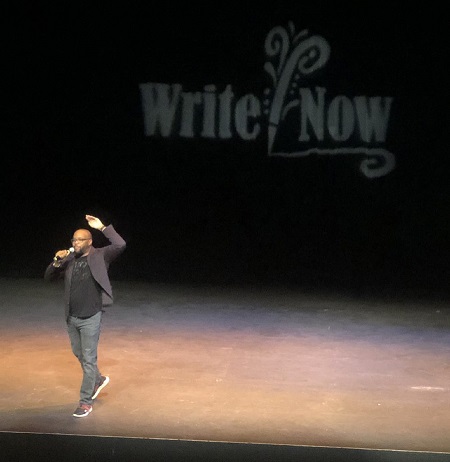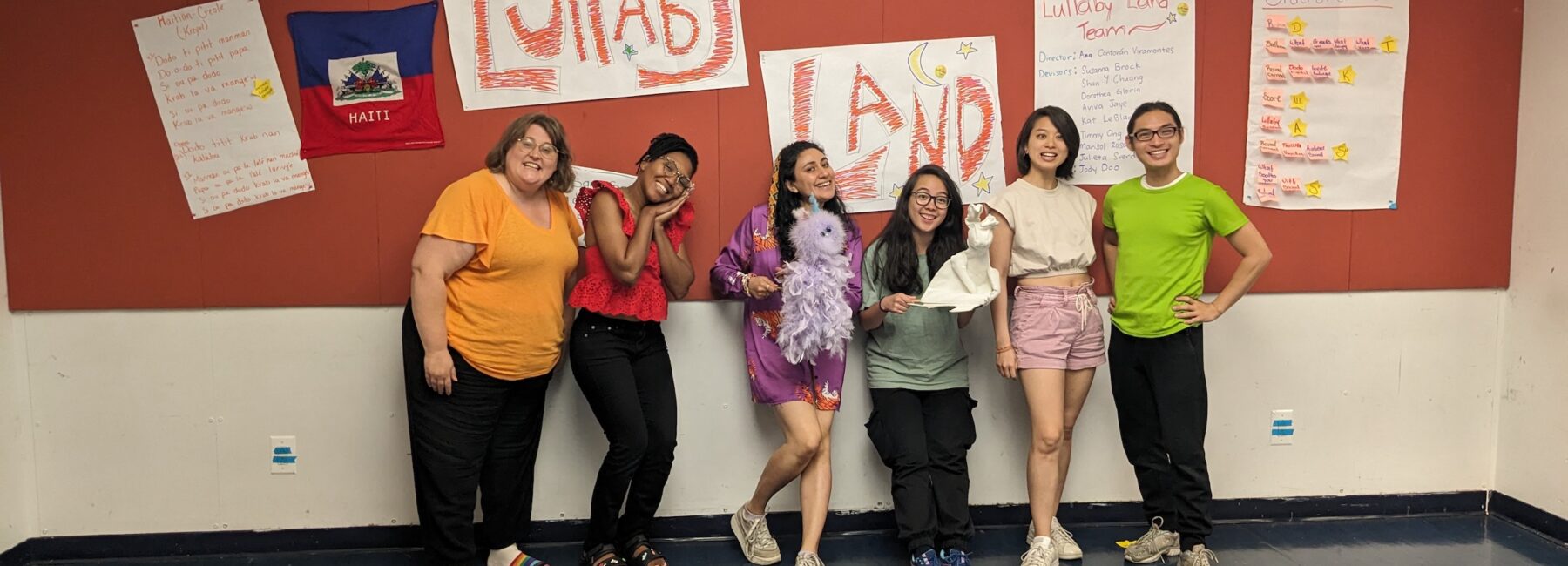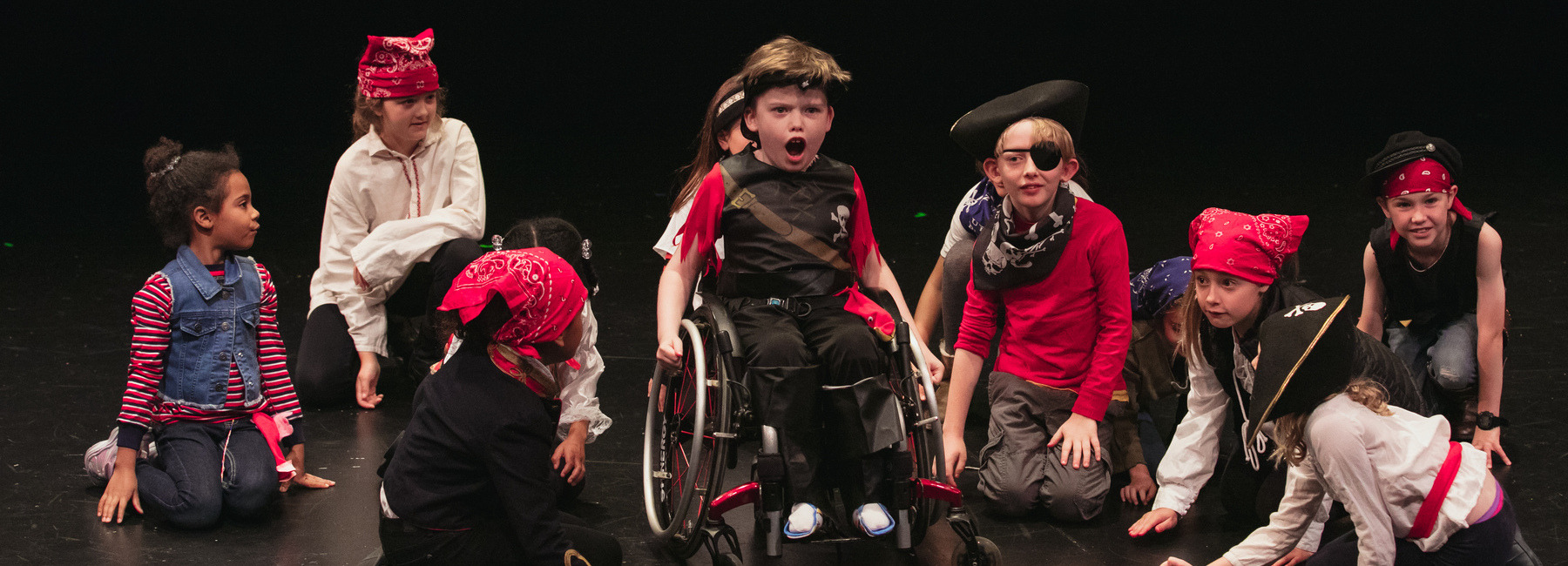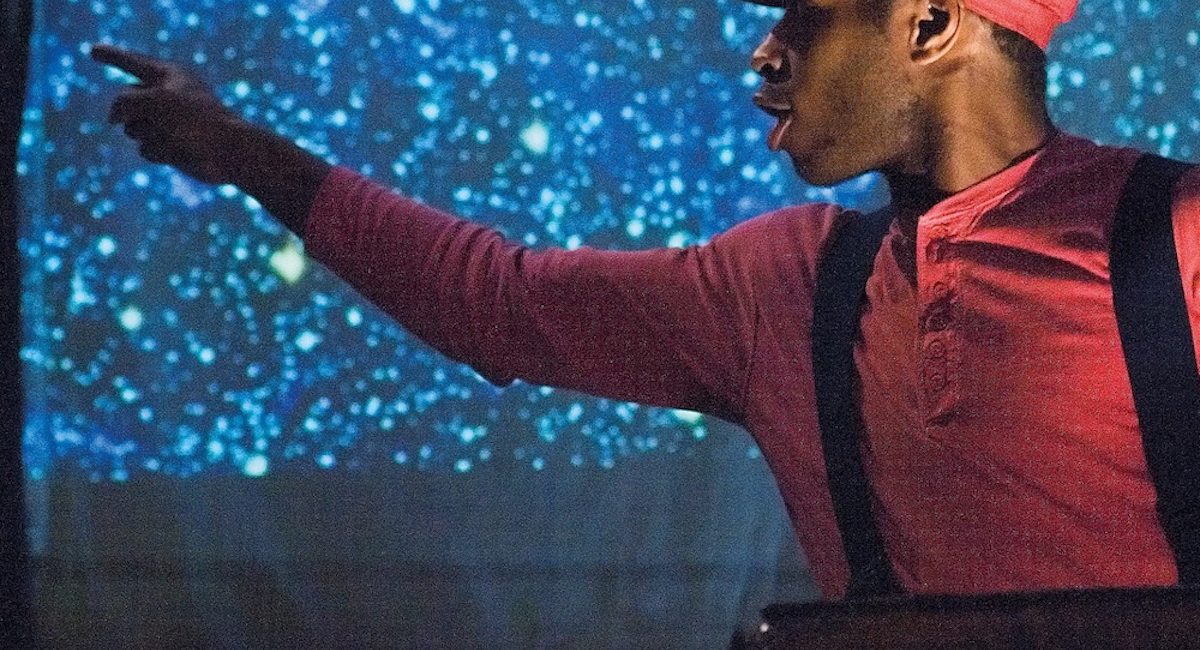I come to you today by way of Louisville, Kentucky where I am the Producing Artistic Director of StageOne Family Theatre, a professional civic theatre for children and the communities that raise them. We been around for over 70 years.
I left my pretty sweet and comfy gig teaching playwriting and directing at a liberal arts college in Colorado because I felt this overwhelming urgency. Theatre has an important role to play in the world right now. And as a theatre maker I felt it necessary to suit up and get deeper into work, in a city in the middle of the country.
So earlier this week, I’m leading a workshop with some 6th graders, part of one of the many in school residencies StageOne conducts every year. But this workshop is part of a new endeavor called The Mixtape Ensemble. It’s making theatre out of spoken word, music and dance–which you know is technically what all theatre is, but it’s got a hip hop twist to it I guess–anyway it’s dope and kids get to touch turntables—cuz, let’s be honest right?
Anyway, the theme of this last workshop was names. Because if there is one thing every human on the planet has in common, aside from the fact that we’re all humans which means we’re mammals who spend too much on our phones, the one thing we have in common is someone gave us a name and there was a specific reason. There was a story.
Maybe a small one, maybe a long one, but there’s always a story. It’s the purest, simplest and yet most powerful thing—to invite someone to tell you their story.
I have led poetry writing workshops like these for as long as I can remember. And I always begin by telling them about my own name.
(Goodwin delivered his poem ‘Say My Name.’ You can hear it here: ‘Say My Name’ by Idris Goodwin)
Over the years I’ve gathered a number of great name poems to teach: There’s first name Cassandra, Middle Name Remembrance by Cassandra Anouthay, Danez Smith’s Alternative Names for Black Boys, Luis Rodriguez My name is not Rodriguez, Notorious B.I.G’s Big Poppa….
And we appreciate our Blumes, and Suesses, our Woodsons and Lobels, our Wilders, Cleage and Dahls whose stories raised so many generations of us—but there are other names, so many other names whose visions and dreams of other possibilities that can blow the doors off a kid’s mind.
And they are all around us. The stories -not just the ones told by people, the buildings, and landmarks–the food, the smells, all have a specific history lined with faces. Our cities are treasure chests of stories too, matter fact, it was a Louisville story that began my relationship with StageOne a few years back.
Once upon a time a black child from the city’s west end discovered his bike was stolen and in a fit of rage demanded justice from a police officer and was instead invited into the boxing ring to be prepared just in case he and the thief would ever meet, (they never did) but this black child stayed in the ring and continued to fight for justice, even after he stepped out the other side of the ropes.
While researching what would be become And In This Corner Cassius Clay: the making of Muhammad Ali, I learned about the man, but I also learned about the city and all the rich stories it contains.
When we seek, glean and cultivate the stories that live around us, we’re doing something radical. We are promoting a type of engaged curiosity, a way of peeling back the grass and revealing the world under. And when we put resources into the development of one of the stories we unearth we are suggesting that under our feet is just as much color and wonder and possibility as a boy trapped in a giant peach.
And we are in a moment where fact is considered optional. A moment where it’s less about truth and more about who can tell the better story. Where everyone has a right to their quickly rattled off opinion. As theatre makers, space curators, culture cultivators we have the power to immerse audiences in worlds not their own. In a moment of so much othering we can normalize difference and celebrate the varied experiences that make us whole.

As theatre makers, space curators, culture cultivators we have the power to immerse audiences in worlds not their own. In a moment of so much othering we can normalize difference and celebrate the varied experiences that make us whole.
It’s apt that I’m talking to you on Valentine’s day. And because my family truly loves me, they’ve gifted me understanding that I am with you all tonight and not with them eating chocolate. Because they also recognize the time is now and there’s little of it to waste. We need us a revolution. And all revolutions are driven by intense love.
Martin Luther King Jr says, “Power at its best is love implementing the demands of justice, and justice at its best is power correcting everything that stands against love.”
Art is a labor and act of love. Art is power. As artists we have tremendous terrifying power. Not just in our ability to vision and dream, most people can do that, that’s a human thing, but it is our willingness to wrestle with and birth that vision or dream into the waking world.
And this is why they make it hard on us. Why the funding opportunities come and go or require more and more questions to answer, forms to fill out and hoops to leap through. This is why we are typically the first to get cut. Why our work is deemed expendable when in fact what we are doing is the very thing that makes us human. We are telling our stories back to ourselves so that we know who the heck we are.
There is such urgency–there is such a wealth here in this complicated country on this complicated continent.
While the ability for us to spread information has been critical in coalition building, the onslaught of headlines and pundits can be isolating and soul-crushing. The human need to be in a physical space, to be in ritual with community, can never been duplicated. The performing arts can build these spaces for audiences to both escape and wrestle with the world’s riddles. We can craft spaces big and small for the kindling of one’s imagination.
Tomorrow I’m facilitating a workshop themed Our Wildest Dreams. It is an opportunity for us to exorcise conventional wisdom and freely vision as far as our imaginations will allow. Because we are currently living in someone else’s imagined reality. All of us right now. Someone dreamed this. And we are in the business of dreams.
I dream of a theatre where all are reflected throughout the course of a season. I dream of a theatre that is used to educate, that is used to heal and incite. I dream of a theatre that honors writers past and invests widely in the voices of today.
I dream of a theatre that isn’t theatre at all. I dream of theatre that occurs in classrooms, corners, cafes, parks, bus stops, playgrounds, prisons, juvenile detention centers, halfway homes, orphanages, retirement homes, churches, mosques, and synagogues across the entire world. A theatre that is written and improvised, collectively conceived with actors and non-actors, that draws from a broad cultural canon.
I dream of a theatre that seeks to make amends and empower. A theatre whose staff resembles the residents of the city upon which it lives but whose stage looks like the world.
I dream of a theatre that exalts the stories of the poor and unknown as highly as those of the men whose faces adorn our currency.
I dream of a theatre full of passionate, loud, arguing, colorful, cooperative and yet well-compensated theatre makers (I mean, why not, we’re dreaming after all) who are liberated and appreciated and seen as necessary as athletes and war heroes.
This theatre of which I dream will mirror, hopefully, the ethos of the country where I pay taxes, raise children, and honor my ancestors.
And whether I see these dreams materialize or not it is what drives me in my waking hours. They encourage me to be unafraid to ask and research and recognize the limits of my own cultural experience.
They will help me be deliberate when I ask for the keys. When I demand the keys in order to open the doors and let in the world.
The world needs stories. We are the storytellers, those on the stage, those who light it, and those who facilitate the means to build it. All of us. Others did it for us and now it’s our turn. Now imagine what happens when all the storytellers come together!
It’s an urgent time. Truth is under attack and hate is on the rise. And because today is Valentine’s Day, which is nestled in the warm center of Black History Month I have to remind you again about the necessity of love and celebration. Let this Black History Month not only be a celebration of voices and minds of the past but also the living among us, daily fighting in ways both big and small. And let this energy carry over into Women’s History Month, Asian Pacific Islanders Heritage Month, Hispanic Heritage Month, Native American Heritage Month, LGBTQ Pride Month, and all designated moments of recognition. So that year-round we are in conscious practice of uncovering the dreams of those unexalted, animating them with our bodies and breath until they become reality.
And the way we do this is by extending the invitation. So I invite you all: tell me your name, tell me what it means, what’s your story?



